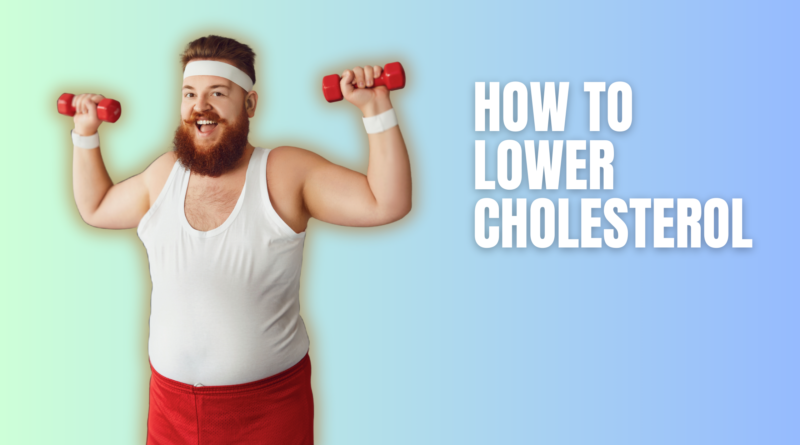How to Lower Cholesterol: Effective Strategies for a Healthier Heart
How to Lower Cholesterol: Discover proven methods to reduce LDL levels and enhance heart health through diet and exercise.
Cholesterol, a waxy substance in your blood, is crucial in building healthy cells. However, high levels of cholesterol can increase your risk of heart disease. This condition leads to fatty deposits in blood vessels, eventually growing large enough to impede blood flow or break suddenly, forming a clot that causes a heart attack or stroke. Understanding the difference between LDL (bad) cholesterol and HDL (good) cholesterol is essential for managing your health. LDL cholesterol contributes to fatty buildup in arteries (atherosclerosis), while HDL cholesterol helps remove other forms of cholesterol from your bloodstream.
Understanding Cholesterol and Its Roles
Cholesterol isn’t inherently bad. Your body needs it to build cells and make vitamins and other hormones. However, too much cholesterol can pose a problem. LDL, or low-density lipoprotein, is often termed the “bad” cholesterol because it contributes to fatty buildups in arteries. This is a risk factor for heart disease, heart attacks, and strokes. Conversely, HDL, or high-density lipoprotein, is known as the “good” cholesterol because it carries cholesterol from other parts of your body back to your liver, which removes the cholesterol from your body.
Dietary Changes to Lower Cholesterol
To manage your cholesterol levels effectively:
- Reduce Saturated Fats: Saturated fats, found primarily in red meat and full-fat dairy products, raise total cholesterol. Reducing your intake of these foods can lower your bad LDL cholesterol.
- Eliminate Trans Fats: Also known as partially hydrogenated vegetable oil, trans fats significantly contribute to overall cholesterol levels and have been banned in the U.S. since 2021.
- Increase Omega-3 Fatty Acids: Omega-3 fatty acids have heart health benefits, including reducing blood pressure. Foods rich in omega-3 include salmon, mackerel, and flaxseeds.
- Boost Soluble Fiber: Foods like oats, apples, and kidney beans can reduce cholesterol absorption into the bloodstream.
- Add Whey Protein: Studies show that whey protein can lower LDL cholesterol, overall cholesterol, and blood pressure.
Lifestyle Modifications
- Exercise Regularly: Physical activity can help raise HDL cholesterol, the “good” cholesterol. Aim for at least 30 minutes of exercise with your doctor’s OK five times weekly.
- Quit Smoking: Quitting smoking can improve your HDL cholesterol level. The benefits occur quickly, significantly improving within months.
- Lose Weight: Even a small amount of weight loss can help lower cholesterol. Regular physical activity and dietary changes can help.
- Moderate Alcohol Use: Drinking alcohol only in moderation, as excessive drinking can lead to serious health issues, including high blood pressure, heart failure, and strokes.
Natural Supplements and Their Effects
While diet and lifestyle are pivotal, some may turn to supplements like red yeast rice, niacin, and plant sterols or stanols to help lower cholesterol. However, it’s crucial to consult with a healthcare provider before starting any supplement, as these can interact with other medications and aren’t suitable for everyone.
Monitoring and Professional Care
Regular cholesterol screenings are vital for monitoring your heart health, especially if you have a family history of heart disease or other risk factors. If lifestyle changes are insufficient, your doctor may recommend medications such as statins to help manage your cholesterol levels.
Frequently Asked Questions
Question: How often should I check my cholesterol?
- Answer: Adults should have their cholesterol measured at least once every 4 to 6 years.
Question: What is the difference between home cholesterol test kits and professional assessments?
- Answer: Home test kits can provide a convenient snapshot of your cholesterol levels, but professional assessments offer more detailed and accurate results.
Question: Are there any myths about cholesterol I should be aware of?
- Answer: One common myth is that foods high in cholesterol are consistently the leading cause of high blood cholesterol. In reality, saturated and trans fats have a more significant impact.
Final Thoughts on Cholesterol Management
Managing cholesterol is not just about taking medication; it involves a holistic approach that includes diet, exercise, and lifestyle changes. By understanding how to lower your cholesterol effectively, you can take significant steps towards improving your heart health and reducing your risk of heart disease.

